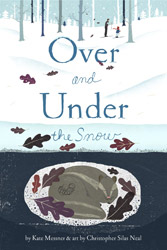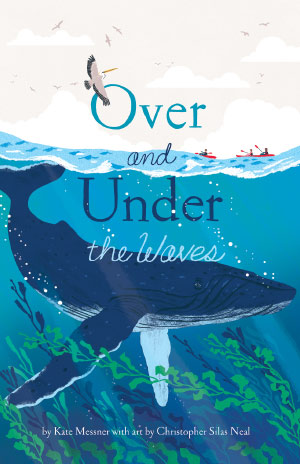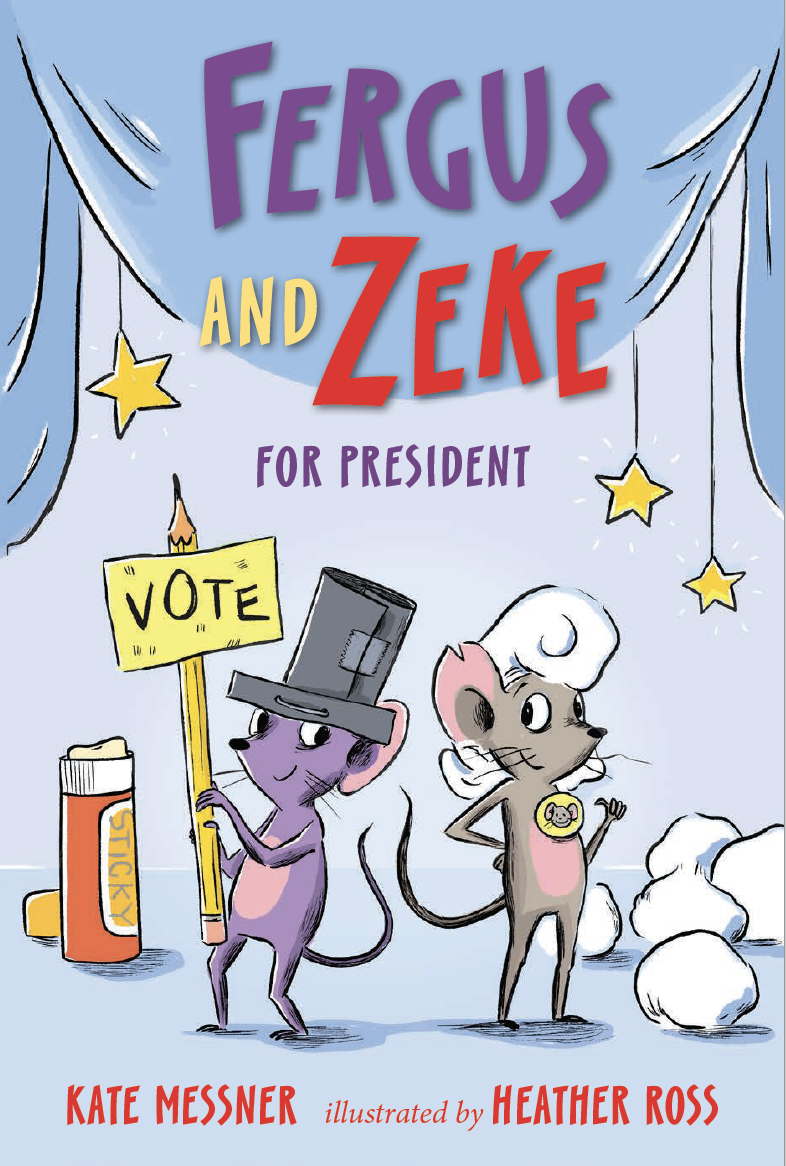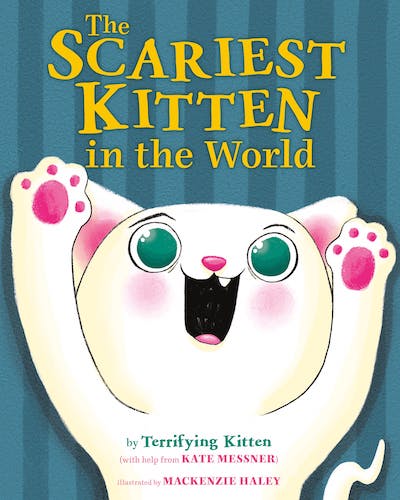“I’ve written a Picture Book…”
It’s the beginning of a conversation that I have with people regularly – at writing group, at a school or conference or in the grocery store. And please note that my capitalization of the words “Picture Book” is intentional. This Picture Book is a proper noun in the writer’s world. This book is beloved. Often, it’s their first manuscript. Sometimes, it’s inspired by children or grandchildren. Sometimes, it’s a fine idea, and the writer has worked hard to revise the text.
“So what next?” the person asks. “How do I get it published?”
“Well…” I pause here. Usually, I tell the writer about SCBWI and Harold Underdown’s beginner’s guide to children’s books and how one actually writes a query letter. But what I really want to say is, “Write more.”
Here’s the thing about picture books. In my experience, writing them is a lot like skipping stones when you’re a beginner. You kick rocks around the shoreline until you find just the right one. You might have the perfect smooth, flat rock. But then if the angle is wrong, if you throw too hard or not hard enough, you still end up with a plunker. It takes a lot of tries to get a really great one. Picture books are like that, too. At least, they are for me.
At least once a day, I see something interesting or beautiful or weird, or I hear something amazing or funny and think to myself, “Hey! That could be a picture book!” Sometimes, I hold onto that thought long enough to consider it for a moment and think either “No…never mind.” Or “Yes…yes, it could indeed.” If the pondering leads to a yes, I scribble the idea in my notebook. This probably happens twice a week, on average.
Lots of these ideas live in my notebook forevermore. I wave to them when I flip through the pages, but that’s about all the attention they get. Except for the really persistent ones.
Of those ideas that get written down – let’s say there are maybe a hundred over the course of a year – a handful aren’t content to just live quietly in the notebook. They follow me around, when I’m running or driving in my car, even when I’m in the shower. (Ideas are not big on privacy and personal space.) These ideas that surface over and over again and demand to be thought about some more? I try writing them into books.
This probably happens around thirty times a year. I sit down with the idea and say, “Okay…you’ve been following me around for weeks now. What is it? What do you need? What’s the story?” And I take a stab at shaping that idea into something that will work as a picture book.
About a third of these end up not working out, and I know that pretty quickly. Sometimes, I’m only halfway through a draft when I look at it and think, “No…not this.” That happened this week, with a book called WOMBAT’S VALENTINE. It doesn’t mean that WOMBAT’S VALENTINE should never be a book. But it does mean that right now, I haven’t hit upon a great way to write it. So that idea, having had its fair chance in the sun, goes back to hanging out in the notebook for the time being.
The other two thirds of those picture book ideas are more promising. I sit down. I write a draft of the book and think, “Hmm…this might just work!” I finish, set it aside for a while, and revise. I do that five or six more times. This happens with about twenty manuscripts each year.
After all that revising is done, I decide that I do not like eight of the books very much after all.
The other twelve books, I show to a friend (usually with an email that says, “Am I crazy or could this be a picture book?”) I have great writer pals who answer this question truthfully. Well…mostly. They really never say, “Good God, no!” even when the manuscript might warrant that. They say, “Well…maybe. I wonder if you’ve thought about any other structures…” or “It’s interesting…and I think if you really work on the character arc, you might have something here.” Once in a while, they say, “Yes! I think this might very well be a book some day.”
This happens maybe eight times a year. Remember that I started with roughly 365 flashes of idea – 100 of which made it to the writer’s notebook, 30 of which got started, 20 of which actually got finished without being abandoned halfway through, and 12 of which were then promising enough to share with a writer friend. Of those twelve, I will probably be wrong about four of them. So now I’m down to eight manuscripts that have made it through all those stages of picture book writing and revising. They have survived the picture book gauntlet.
These are the manuscripts I revise a few more times and then send to my agent, generally with a note that says, “I’ve written this picture book, and I really love it. When you have time, please take a look and let me know what you think!” She reads them and ponders. (At least, I imagine her pondering.)
Of those eight manuscripts, two or three will have problems that my critique buddy and I either didn’t notice or didn’t know about. Maybe the book is kind of didactic, after all. Maybe it’s too similar to a Mo Willems book that we didn’t know about. Or maybe it needs a stronger ending that I can’t quite come up with yet. So those books don’t go out into the world.
The other five or six manuscripts might be revised a few more times before they pass muster with my agent. She will send those out to editors and wait for their responses. There will be more revising. And if things go very well, one or two of those original 365 idea-sparks will grow up to be a book.


This is why I try out lots of picture book ideas. I fail frequently and cheerfully. But I’ve also been able to work with a few great editors to make a few of those ideas into real live books. And that is an amazing experience. It just takes a while to get there.
So you’ve written a picture book.
And that’s great!
If you feel like it’s ready…if you’ve revised and revised…if it’s the best book it can be and has the potential to thrive in the current market, then send it out to a few editors. And then? Step away from your email, and step away from the book.
Write something else. Something new.
Write more.
Because if you’re anything like me, you may have to skip a lot of stones before you get it just right.





So totally true!
I haven’t written a picture book, but I have written lots of poems, and the more I write, the more I realize how much I need to, well, write! This is good, and kind, advice, Kate. Thanks!
Good post, thanks for this… I would definitely read something called Wombat’s Valentine!
Great post, Kate! So true, and so generous of you to share stories of the failed attempts and false starts. Anyone who thinks writing picture books will be easy has a tough and disappointing road ahead.
Than you, Kate. I needed a kickstart to begin writing something new. I’ve been obsessing over one picture book idea for too long, and I need to begin giving attention to the others I have floating around my mind!
This is fabulous and really affirms the road I’ve traveled so far as a pre-published picture book writer. And it definitely gives me hope that to keep writing is right thing to do!! Thanks, Kate!!!!
This is brilliant. It really is just simple math, isn’t it. More stories = better odds. Ugh. I hate math. But I love writing picture books…..
Splendid post. Just what I needed to hear as I decide whether to revise a few existing manuscripts or start afresh with a new idea.
Thanks for sharing! It reminds me that I need to write a LOT more. I love the part about ideas invading your personal space…my ideas pop into my head at all hours of the day, no matter what I am doing.
Yes! The more we practice, the better we get! Now, back to the manuscript!
Great reminder that writer’s are in a marathon, not a sprint and it takes a lot of practice! Off to practice more. . . .
Kate,
Once again . . . just the right wise words at the right time. Thank you for this excellent post!
Kate, this is wonderful advice for me right now, as well…I am in a ‘production slump’ and needed this encouragement. Thanks!
Thanks for sharing the reality of writing picture books. It is helpful to read your process and know that my own mss should undergo the same objective scrutiny.
I love everything you have said in this post, but most of all I love this line: ” I fail frequently and cheerfully.”
Phew! Now I feel better about the PBs I’ve given up on. And doing more revision on the remaining ones!
Great post Kate. Thanks!
My question to you is this, ” how many notebooks do you own?” 🙂
Thanks for your generous post.
I love how you approached the journey from idea to published book with all the numbers. It paints a realistic and matter-of-fact picture of the work involved in writing PBs.
Thanks for this post. I really enjoyed your insight into the process of picture book writing. I write mostly middle grade, and have been trying out some picture book ideas and mostly failing. This helped me realize, that\’s probably just part of the process.
This is a wonderful post. I hope you don’t mind if I share it far and wide! 🙂
What a wonderful post – and such excellent advice. Thank you!
Terrific advice!
Well said, Kate! And I’m a math person, so I especially liked your numbers approach to the topic. Thanks!